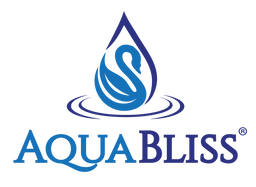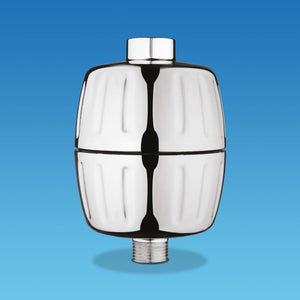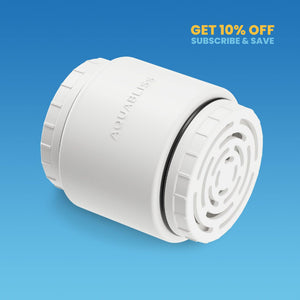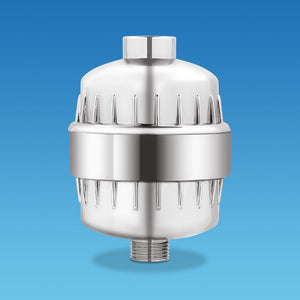Yes, hot showers can help relieve sore muscles. The warmth from the water relaxes muscle fibers, promotes blood flow, and can reduce muscle tension and stiffness. Though not a miracle cure-all, the use of hot showers during the post-workout period or after working in physical labor can relieve pain temporarily and promote general relaxation.
In this article, we will explore why do hot showers help with sore muscles is such a common question, compare the effects to cold treatment, and provide tips for maximizing the benefits safely.
Why Do Muscles Get Sore?
Muscle soreness often follows physical exertion, particularly activities your body isn’t used to. Known as Delayed Onset Muscle Soreness (DOMS), this discomfort usually appears 12 to 24 hours after exercise and can last for several days.
Common causes include:
- Microscopic tears in muscle fibers from intense or unfamiliar exercise
- Accumulated lactic acid and metabolic waste
- Inflammation and minor swelling in the affected area
- General muscle tension from stress or overuse
The body’s natural healing response kicks in by increasing blood flow to the area, initiating inflammation, and the repair process. This can lead to stiffness, discomfort, and reduced mobility.
The proper recovery method, such as using hot or cold water, can make a significant difference in recovery time and comfort. DOMS is particularly common after exercises that involve eccentric movements, like downhill running or lowering weights.
Additionally, individuals new to strength training or returning after a break are more susceptible to soreness. While DOMS is a normal part of building strength, improper recovery can lead to extended fatigue, risk of injury, or performance plateau.
Understanding what causes muscle soreness helps tailor the right recovery techniques, whether it’s heat for muscle relaxation or cold to reduce inflammation, so you can return to activity stronger and pain-free.
How Does Heat Affect Sore Muscles?

Heat therapy works by dilating blood vessels and increasing blood circulation to targeted areas. The warmth helps loosen stiff muscles, relieve muscle tension, and promote muscle relaxation.
This is especially useful for chronic muscle pain or soreness following exercise. Compared to cold methods that reduce inflammation and numb pain, hot showers, hot baths, and hot compresses provide comfort by improving blood flow and relaxing the nervous system.
Warm water can also help soothe nerve endings, contributing to short-term pain relief and increased flexibility. The increased temperature helps to reduce the excitability of muscle spindle fibers, which play a role in muscle tightness and spasms.
This explains why heat feels so effective in relaxing overworked or contracted muscles. Heat can also stimulate the sensory receptors in the skin, which decreases the transmission of pain signals to the brain—another reason why it’s perceived as soothing.
Benefits of Hot Showers for Sore Muscles
While there are multiple ways to apply heat therapy, hot showers stand out as accessible, convenient, and efficient. Unlike other methods that require preparation or equipment, like heating pads, sauna sessions, or hot tubs, showers can be easily incorporated into daily routines without additional effort or expense.
For those with busy schedules or limited access to recovery facilities, a hot shower offers an immediate, low-barrier form of relief. This practicality is particularly helpful for individuals who need consistent muscle recovery support, whether from exercise, long work shifts, or underlying musculoskeletal conditions.
1. Increased Blood Circulation
Hot water causes blood vessels to expand, increasing circulation. This delivers nutrient-rich blood and oxygen to sore muscles, aiding in tissue repair and muscle recovery. Enhanced circulation can also help flush out toxins and reduce the buildup of lactic acid, a byproduct of strenuous exercise.
2. Muscle Relaxation
Hot showers naturally soothe the nervous system and help muscles release built-up tension. The combination of heat therapy and gentle water pressure can ease muscle tightness, providing much-needed comfort and supporting better sleep quality.
3. Joint Relief
Hot water isn’t just for muscles—it also helps ease discomfort in stiff joints. The warmth reduces joint stiffness and improves mobility, making it particularly beneficial after physical activity or during recovery from strain.
Are There Risks to Hot Showers for Muscle Recovery?

While the answer to do hot showers help with sore muscles is generally yes, overuse or overly hot water can pose risks. Excessive exposure may cause skin dryness, irritation, or even dizziness due to dilated blood vessels.
To keep the benefits while minimizing downsides, stick to moderate heat and time limits.
Potential Skin Irritation
Hot water can strip natural oils from the skin, leading to dryness or irritation. Sensitive skin may react to hot temperatures or hard water containing chlorine or heavy metals.
This is especially true when shower filters are not used, as these irritants can be more concentrated and exacerbate issues like eczema, redness, or itchiness. In some cases, the skin’s natural barrier may be compromised, leaving it more vulnerable to environmental stressors and sensitivity.
Excessive Heat Exposure
Spending too long under very hot water can cause dehydration, dizziness, or fatigue. This is especially concerning for individuals with cardiovascular conditions or low blood pressure.
Heat can lead to a drop in blood pressure due to dilated blood vessels, making some people feel lightheaded. Overexposure may also impact sleep quality if taken too close to bedtime. Moderation is key. Be sure to monitor the water temperature and limit your post-workout shower to a safe and effective duration.
Best Practices for Using Hot Showers for Sore Muscles
To get the most out of your post-workout shower, follow these expert-recommended tips. Optimizing the way you use hot water can maximize muscle recovery and minimize potential side effects like dry skin or overheating.
While the temptation may be to linger longer in the warmth, using the right water temperature, timing, and support strategies ensures you’re getting the best possible outcome from your post-exercise recovery session.
Paying attention to your body and pairing hot showers with proven recovery practices will enhance results while keeping your skin and cardiovascular system healthy.
Ideal Water Temperature
Keep water between 95–105°F. This range promotes increased circulation without stressing the skin or body.
Shower Duration
Limit your hot shower to 10–15 minutes. This is long enough to benefit from heat therapy without overexposing your skin or raising body temperature excessively.
Complementary Treatments
Boost the effects of hot showers by pairing them with:
- Light stretching or yoga
- Self-massage or foam rolling
- Adequate hydration post-shower
- Warm bath soaks or hot compresses as needed
Cold Showers vs. Hot Showers for Muscle Relief
Wondering whether to use a cold or hot shower? It depends on your goal.
- Cold showers or ice baths are best for reducing inflammation and preventing swelling immediately after workouts.
- Hot showers are ideal for relaxing muscles, improving circulation, and relieving tension a few hours post-exercise or the day after.
Cold water therapy works by causing constricted blood vessels, which helps decrease swelling and numbs nerve endings, offering relief from acute pain. This makes it a go-to option after high-intensity training, especially when there’s a risk of strain or inflammation.
Athletes often use cold water immersion to reduce muscle soreness and enhance post-workout recovery. In contrast, hot water helps with loosening stiff muscles and is often preferred when dealing with chronic soreness, muscle tension, or when you want to improve blood circulation.
It’s more suited to improving flexibility and aiding in muscle relaxation rather than addressing injury-related swelling. Contrast showers, which alternate between hot and cold water, have been found effective for recovery. This approach utilizes the benefits of both methods—cold for inflammation control and hot for circulation and muscle repair.
Can Shower Filters Improve the Benefits of Hot Showers?
Yes. Using a high-quality shower filter from AquaBliss can enhance the benefits of hot showers by reducing:
- Chlorine
- Hard minerals
- Heavy metals
Filtered water reduces the risk of skin irritation and enhances the comfort of each shower. This makes it easier to enjoy regular hot showers without the negative effects of unfiltered water.
Many municipal water supplies contain additives like chlorine or sediments that, when heated, can be harsher on the skin and respiratory system. This is particularly relevant when taking longer hot showers that expose your skin and lungs to more steam and particles.
By using a filter, you reduce the likelihood of rashes, dryness, and allergic responses.
Your Recovery Routine, Upgraded
So, do hot showers help with sore muscles? Absolutely. They:
- Dilate blood vessels and boost circulation
- Promote muscle relaxation and tension relief
- Soothe stiff joints and discomfort
If used correctly, they can become an essential part of your post-workout routine. Pair them with hydration, clean water, and balanced recovery habits for maximum benefits. Incorporating hot showers into your recovery regimen doesn’t just benefit your muscles—it can improve your overall well-being.
The calming effect of warm water reduces stress, promotes mental clarity, and can even prepare your body for better sleep. When combined with a nutrient-rich diet, adequate sleep, and light physical activity like stretching or walking, a hot shower becomes a powerful tool in your self-care arsenal.
Moreover, when using filtered water, you’re not just helping your muscles—you’re also protecting your skin and respiratory health from unnecessary irritants. For the best results, make hot showers part of a consistent, holistic wellness strategy.
Whether you’re dealing with post-workout tension, daily stress, or chronic muscle fatigue, they offer a simple yet effective solution. Ready to elevate your shower experience?
Visit AquaBliss and discover our advanced shower filters designed to support skin, hair, and muscle recovery. Need help choosing the right one? Contact us here.







